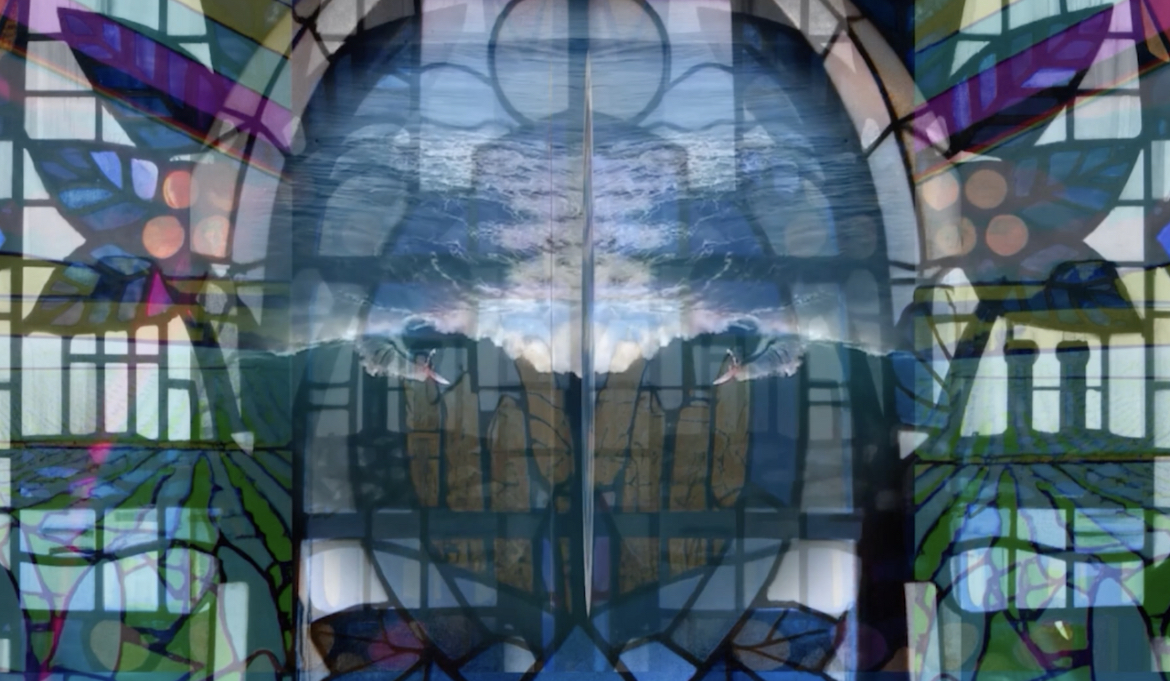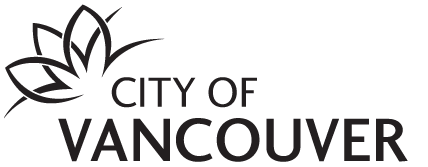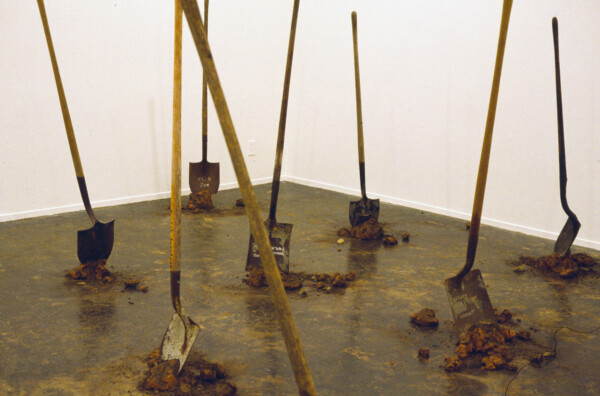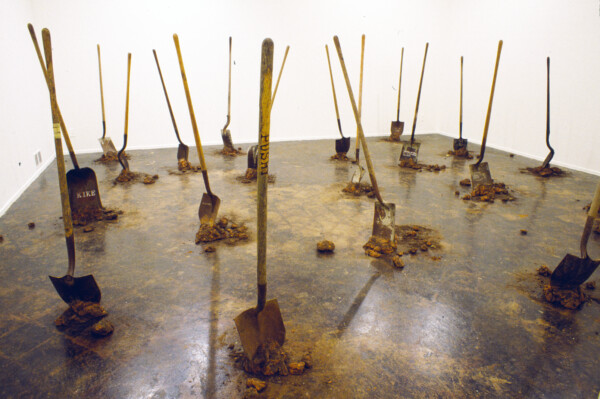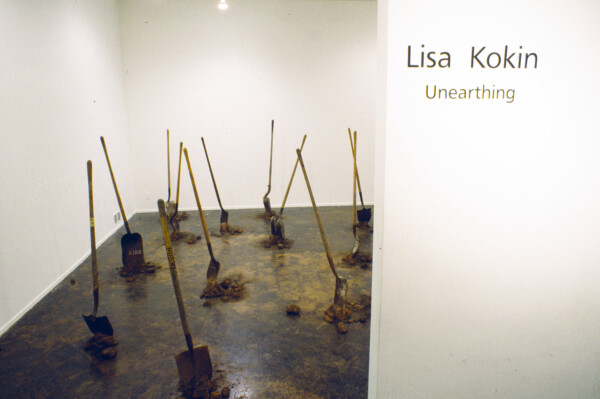- Unearthing –Lisa Kokin
- Unearthing –Lisa Kokin
- Unearthing –Lisa Kokin
- Unearthing –Lisa Kokin
Unearthing
Lisa Kokin
7 April–
25 April 1992
Curated by: Susan Shuppli
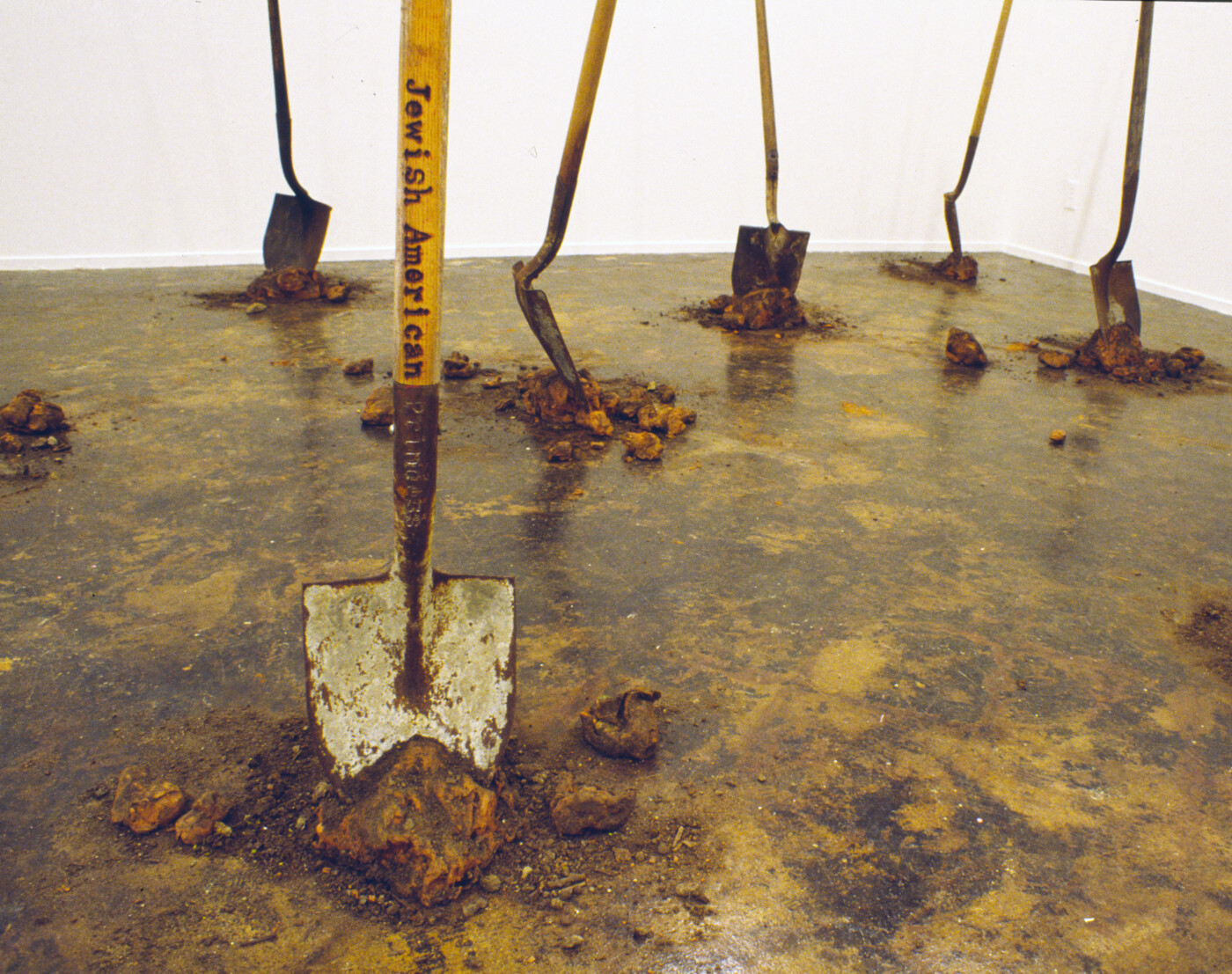
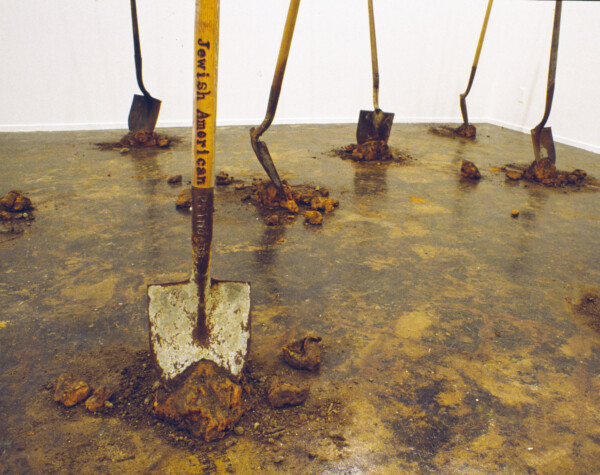
Lisa Kokin, Unearthing, 1992. Courtesy of the artist.
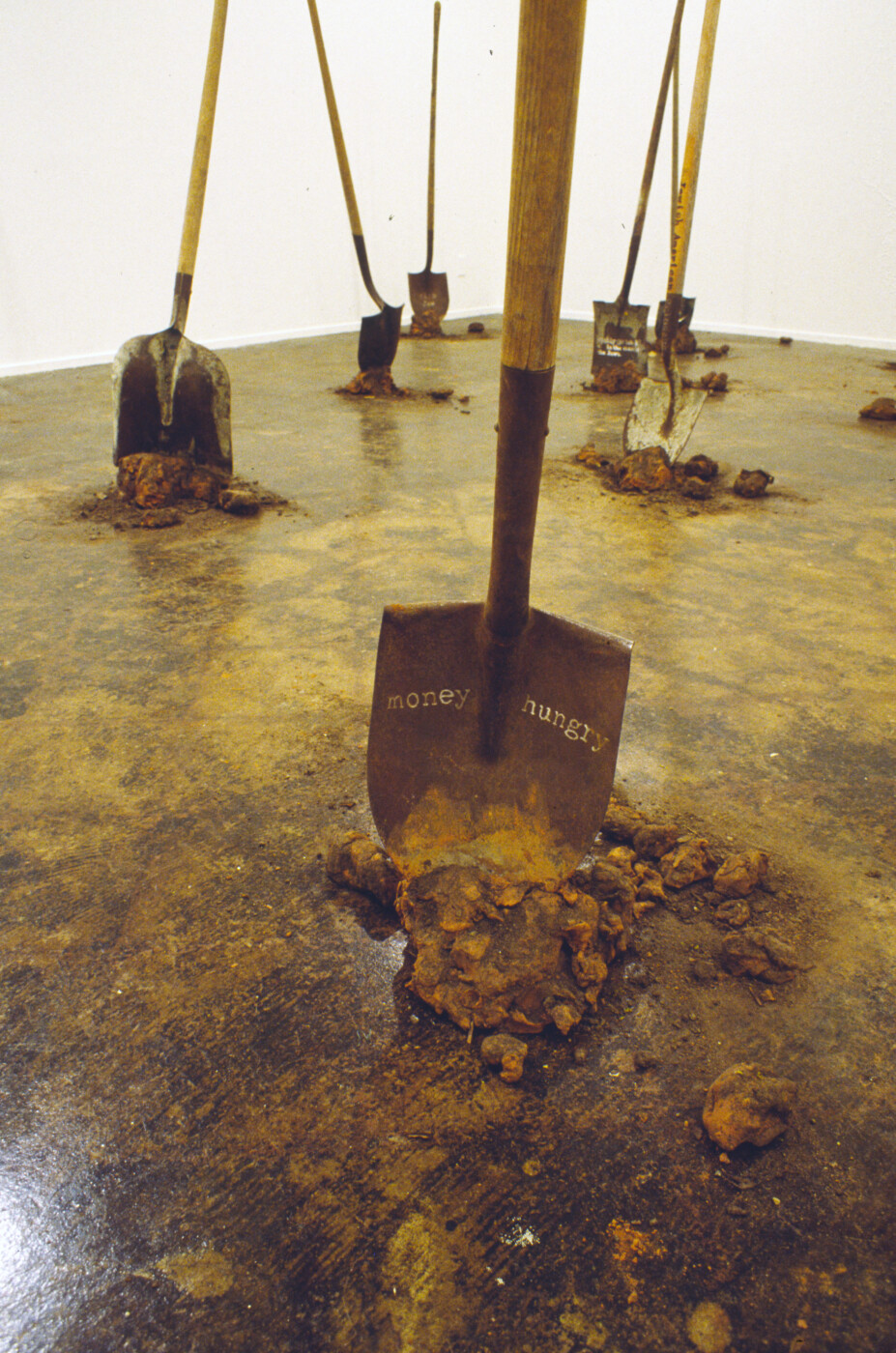
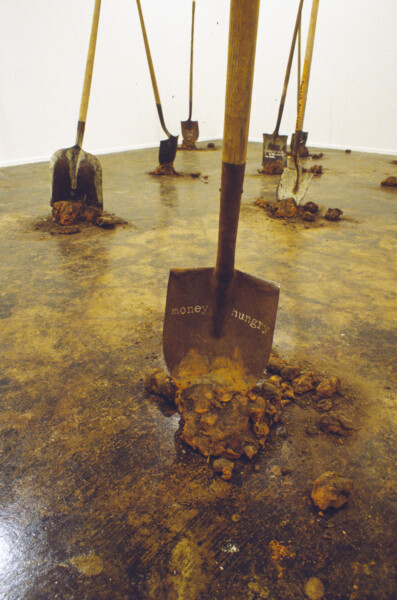
Lisa Kokin, Unearthing, 1992. Courtesy of the artist.


Lisa Kokin, Unearthing, 1992. Courtesy of the artist.


Lisa Kokin, Unearthing, 1992. Courtesy of the artist.


Lisa Kokin, Unearthing, exhibition at Or Gallery, 1992. Courtesy of the artist.


Lisa Kokin, Unearthing, 1992. Courtesy of the artist.
Unearthing
Lisa Kokin
Curated by: Susan Shuppli
Press Release for Unearthing
The Or Gallery begins its spring program with an installation by Lisa Kokin, visiting artist from Berkeley, California. Her visual art production situates itself at the intersection of personal and collective memory as shaped by the historical consquences and experiences of the Holocaust.
Through her ersatz ethnography, she attempts to restore a voice and subject position to the common objects that are left behind us. her work considers the ways in which histories and identities are actively constructed through the reconstitution of cultural artifacts.
Unearthing is an installation of 23 shovels individually mounted in slabs of clay. Each shovel has an anti-Semitic epithet burnt into the handle or etched onto the blade. The words reference both historical and contemporary Jewish stereotyping, from the unabashadely over ‘kike’ to the subtle but insidious ‘pushy’. Briniging these vernacular texts into the pedagogic space of the gallery sets up a conflicting relationship between two different kinds of languages, so that the discussion of racism is not permitted to dissolve into seamless academic discourse.
Unearthing will be Lisa Kokin’s second solo exhibition in Vancouver.
Brochure Lisa Kokin: Unearthing
Sentinels: the shovels stand in deep stillness, keeping vigil, silent but not mute. Scorched into their handles and etched onto their blades are words of hatred for Jews. These texts, specific in their anti-Semitism, are testimonies to the ugly power of the Word in the discrimination against all groups who are defined as Other. They speak with familiarity, of how people everywhere have called the Other inhuman so that they can define themselves as fully human. The obscenities are founded in fear and often in envy, but they are phrases of separation, scorn, and cruelty. To protect the similar we exclude the different; guarding the security of convention and conformity by caution or suspicion, or by denying that which may appear to threaten established boundaries. In a time when many people are advocating diversity and cultural plurality, right-wing groups use the term “political correctness” in a pejorative way to attack such policies. Some of the words scarred into the shovels have fallen into disuse, while others in their seeming banality appear less hostile. Yet what has changed is only the sophistication of the code of condemnation: where once there was “kike” there may now be “pushy” to identify as Jewish a woman from New York. Within the changing vernacular of “otherness” the fundamental tenets of racism prevail.
The shovels stand fixed in earth and clay, evoking ground, burial, graves: the mass graves of the Holocaust. These used objects reconstruct anonymous histories of labour, digging. They disinter the abuse to which people are subjected simply because of the categories to which they belong. The shovels, installed upright throughout the gallery space, recall the body, becoming anti-monuments of unnamed histories.
As found objects retrieved from flea markets and garage sales, these shovels necessarily signify loss or absence and, through implication, the narrative motif of salvage. Yet if one considers the subtext for such an installation, the prospect of restoring a lost voice or subject position to a history of collective atrocity seems an impossible task.
As a child, Lisa Kokin had been shown films of the Holocaust many times. Instead of facilitating her identification with her cultural heritage, the horror of seeing her people’s bones tossed down concentration-camp chuteshadparalyzed her, preventing her from claiming her Jewishness as an intimate part of herself. Only recently has her artwork begun to attend to the elemental themes in her own life.
The first work in a series about the Holocaust and anti-Semitism was an installation of concentration-camp jackets sewn from hog gut, on which she painted stripes and numbers. Hanging stark, translucent, and fragile above gut bags figurative in their placement on the floor beneath them, the jacket’s aesthetic visual presence is disturbingly at odds with their testimonial of human brutality.
Another installation consisted of a stretch of two railway lines with an urn of ashes placed at their apex. Inscribed on the cast-iron plates between each rail was a quote by Lech Walesa claiming that the Jews were responsible for anti-Semitism.
Lisa Kokin recently completed an installation on women’s spirituality with found objects that explicitly integrated themes from feminism, goddesses, and Latin-American Catholicism. Currently, she is making handmade books about childhood, women’s lives, Jewishness, feminism, body image and good girls.
Throughout Kokin’s work are the themes of human suffering and intolerance towards groups of other people because those groups are somehow different from a mainstream. Unearthing challenges the viewer to consider the multifarious histories of racism through a collision of languages, the visual, the written, the implied. The work’s strength is not located entirely in the particular and the personal but also in its abilities to evoke the universal.
— Margaret MacKenzie
Brochure essay by Margaret MacKenzie
Margaret MacKenzie is an anthropologist and assistant professor at the California College of Arts and Crafts. Her recent research, studying the meanings of eating and body weight among women in California, has focused on ideas of self-control and the distrust of pleasure.
Artist Bio
Lisa Kokin
Lisa Kokin is an installation artist living and working in Berkeley, California. She has also received extensive recognition as a textile artist and strives to integrate the materiality of her crafts background into her artworks. Unearthing is Lisa’s second solo exhibition in Vancouver.
